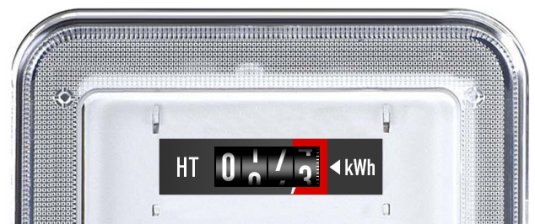15 of the best tips for saving electricity in Israel’s winter months.
Hebrew: עצות לחסוך בחשמל בחורף

What’s the best temperature to set my air-conditioner and what are the best ways to save electricity in the winter months?
Electricity in Israel is not cheap and when you are trying to budget and save money, every agora counts. Keeping your electrical appliances in good working order will go a long way to ensuring you get the best out of them. Follow these tips for saving electricity in the winter and you will see a real difference to your monthly electricity bill.
- How to pay your electricity bill online – step-by-step instructions in English
- Your household bills translated from Hebrew to English
- Are you entitled to an electricity discount?
1. Choose a heating appliance according to your needs, the frequency of use and the amount of space you need to heat. Radiators are better in small spaces.
2. If you are purchasing a new heating appliance, check the electricity output and choose one that is energy efficient and uses as little electricity as possible. An EU energy label should be displayed on large appliances
3. Remember that an air-conditioner is still the most effective heating appliance.
4. If you leave the room, switch off the heater.
5. Close your windows and doors to prevent the heat from escaping. However, if you are using a heater that is powered by gas or other flammable material, make sure that your room is well ventilated so that poisonous and toxic fumes will be eliminated
6. Set the temperature control to between 22 – 24° Centigrade. For every one degree above that you increase the electricity consumption by a whopping 15%.
7. Save on lighting. In winter we use much more electricity for lighting our homes and offices. Change the light bulbs to fluorescent and energy saving globes. You can save 80 per-cent on your lighting bill with these types of globes. In addition, the average life of fluorescent and energy saving globes is between 6 and 15 times longer than a regular globe.
8. Do not dry your laundry over a heater or any other heating source. Use your clothes dryer or hang you laundry outside.
9. Install a timer onto your boiler/geyser and use it in the winter months. Two hours is sufficient to heat a boiler of 140 liters (sufficient for a family of four). The Israeli climate lends itself to solar water heating. A solar water heating system will provide all your bot water bathing needs for at least 7 months of the year.
10. The more water you boil in your kettle, the longer it takes and the more electricity it consumes. No need to boil a full kettle if you only need a small amount of hot water.
11. Make sure that any electrical repairs, either to an appliance or to the household electrical wiring system, are carried out by a qualified electrician only.
12. Do not used damaged appliances or plugs.
13. Make sure that there is earthing in your household electrical wiring. Lots of old residential dwellings do not have this. Get a professional to install an earth if you do not have one.
14. Do you know where your electrical board is and which meter belongs to you? Make sure you do.
15. In an electrical emergency contact the Israel Electric Company (Hevrat HaHashmal) by dialing 103 or contact the police at telephone number 100.
- Summer electricity saving tips
- Electrical appliances – Learn new Hebrew words & phrases with English and transliterations
- Electricity rates and tariffs
Bonus Electricity Saving Tips
16. Buy a large sheet of heavy duty plastic from your local hardware store to cover your laundry when there is a threat of rain or a light shower. The wind will blow your laundry dry. A plastic shower curtain which comes in different lengths and widths, is a handy, low-cost alternative to hang over your washing line.
17. While it’s tempting to purchase items from your local dollar shop, please be careful when purchasing plugs, extension cords and other electrical accessories. Check for some bureau of standards approval – in Israel, the Tav Teken or the European ABS, TUV,UL, CSA. Chinese manufactured goods are stamped with a CCC mark.
European Union energy efficiency rating
 An EU Directive established an energy consumption labeling scheme. Most white goods (large electrical goods used domestically such as refrigerators and washing machines, typically white in color), light bulb packaging and cars must have an EU Energy Label clearly displayed when offered for sale or rent. The energy efficiency of the appliance is rated in terms of a set of energy efficiency classes from A to G on the label, A being the most energy efficient, G the least efficient as shown in the scale here.
An EU Directive established an energy consumption labeling scheme. Most white goods (large electrical goods used domestically such as refrigerators and washing machines, typically white in color), light bulb packaging and cars must have an EU Energy Label clearly displayed when offered for sale or rent. The energy efficiency of the appliance is rated in terms of a set of energy efficiency classes from A to G on the label, A being the most energy efficient, G the least efficient as shown in the scale here.


